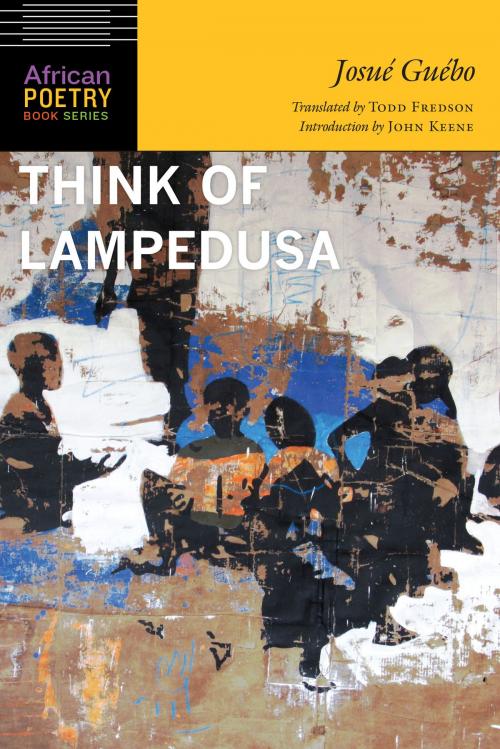| Author: | Josué Guébo | ISBN: | 9781496204714 |
| Publisher: | UNP - Nebraska | Publication: | October 1, 2017 |
| Imprint: | University of Nebraska Press | Language: | English |
| Author: | Josué Guébo |
| ISBN: | 9781496204714 |
| Publisher: | UNP - Nebraska |
| Publication: | October 1, 2017 |
| Imprint: | University of Nebraska Press |
| Language: | English |
A collection of serial poems, Think of Lampedusa addresses the 2013 shipwreck that killed 366 Africans attempting to migrate secretly to Lampedusa, an Italian island in the Mediterranean Sea. The crossing from North Africa to this island and other Mediterranean way stations has become the most dangerous migrant route in the world. Interested in what is producing such epic displacement, Josué Guébo’s poems combine elements of history and mythology.
Guébo considers the Mediterranean not only as a literal space but also as a space of expectation, anxiety, hope, and anguish for migrants. He meditates on the long history of narratives and bodies trafficked across the Mediterranean Sea. What did it—and what does it—connect and separate? Whose sea is it? Ultimately he is searching for what motivates a person to become part of what he calls a “seasonal suicide epidemic.”
This translation of Guébo’s Songe à Lampedusa, winner of the Tchicaya U Tam’si Prize for African Poetry, is a searing work from a major African poet.
A collection of serial poems, Think of Lampedusa addresses the 2013 shipwreck that killed 366 Africans attempting to migrate secretly to Lampedusa, an Italian island in the Mediterranean Sea. The crossing from North Africa to this island and other Mediterranean way stations has become the most dangerous migrant route in the world. Interested in what is producing such epic displacement, Josué Guébo’s poems combine elements of history and mythology.
Guébo considers the Mediterranean not only as a literal space but also as a space of expectation, anxiety, hope, and anguish for migrants. He meditates on the long history of narratives and bodies trafficked across the Mediterranean Sea. What did it—and what does it—connect and separate? Whose sea is it? Ultimately he is searching for what motivates a person to become part of what he calls a “seasonal suicide epidemic.”
This translation of Guébo’s Songe à Lampedusa, winner of the Tchicaya U Tam’si Prize for African Poetry, is a searing work from a major African poet.















